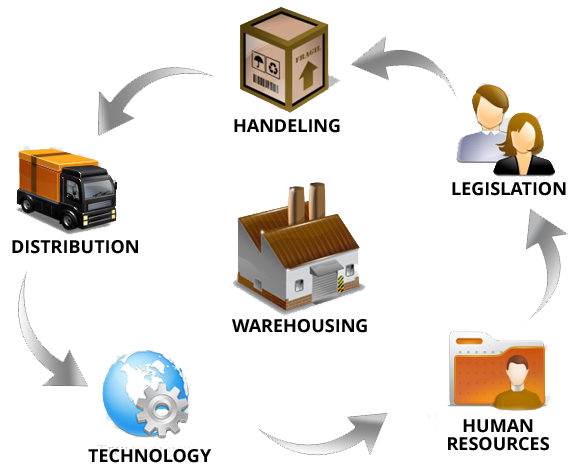Know About WM
What is Warehouse Management?
Warehouse management refers to all of the guidelines and techniques used to oversee everyday activities in a warehouse. In general, this comprises acquiring and preparing warehouse space, scheduling labor, keeping track of goods, and processing orders. If you pay close attention, you’ll see that effective warehouse management calls for streamlining and integrating each of those processes to make sure that every aspect of a warehouse operation works together to increase output and reduce costs.
Benefits of Warehouse Management
Although warehouse operations are occasionally out of customers’ sight, they are a crucial part of timely delivery. In order to achieve this goal, effective warehouse management ensures that warehouse activities are as precise and effective as possible. For example, warehouse management comprises swiftly filling orders, ensuring appropriate staffing; making the most use of warehouse space for inventory storage, and coordinating connections with suppliers and shipping companies to guarantee that goods arrive on time and orders are delivered out.
The advantages of effective warehouse management include quick, high-quality service at a reasonable price that can spread across the entire supply chain, fostering connections with both suppliers and customers.
Optimizing warehouse management, however, can be a challenging endeavour given the numerous components involved. For this reason, a lot of businesses are using warehouse management systems.
Principles of Warehouse Management
You can concentrate your efforts to improve the efficiency of your warehouse by keeping in mind the fundamentals of warehouse management. These principles include:
Know your purpose: Prior to anything else, a warehouse business needs to be aware of its goals. Do your consumers, for instance, have special delivery demands? Do you require specialist storage for your inventory? All warehouse operations also strive to make the best use of available space, personnel, and tools.
Comprehensive control: Coordination of intricate procedures with numerous moving components, including personnel, machinery, orders, and inventory, constitutes warehouse management. In order to make sure everything is going smoothly and address any issues that inevitably arise, warehouse managers need to be able to follow each process. In order to ensure that orders are correctly filled, quality control is essential.
Flexibility and resilience: When goods arrive broken or shipments are delayed by bad weather, warehouse managers must be flexible enough to adjust their plans on the spot. It’s crucial to have the flexibility to change workflows to enhance efficiency, whether this is reorganizing warehouse space or rethinking picking procedures.
Customer focus: One of the most crucial indicators of good customer service and satisfaction is on-time delivery of the right goods. You must be able to rapidly and precisely complete orders if you want to deliver on time.
Data-driven decision making: Even if all warehouse operations seem to be going off without a hitch, that doesn’t necessarily guarantee that they are. A WMS can assist you in identifying and evaluating problem areas.
Why Choose Us
The characteristics of your warehousing operation and your goals will determine the best WMS for you. Above all, the ideal WMS should increase organizational efficiency and improve order fulfillment so you can accomplish more at a reduced cost. Since saving money is a top priority, it stands to reason that you would choose a business that provides the services at a fair price. Bhavam Bhavani Logitech Services Pvt. Ltd meets these criteria.

